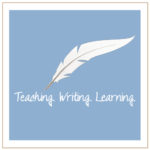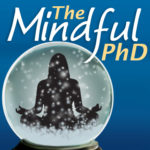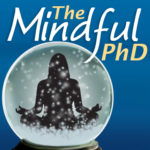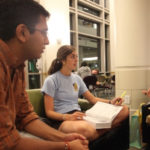resource category
last week’s “t.w.l.” conversation on teaching writing: “grading is teaching”
sep. 24, 2013—by nancy chick, cft assistant director scott juengel (english) talked about “managing the paper load: grading writing efficiently and effectively” with approximately 30 faculty, staff, graduate students, and undergraduate students on september 18. this lunchtime gathering was the second in the “teaching. writing. learning.” series of conversations on teaching writing. although he’s been at vanderbilt...
the mindful phd: reducing stress
sep. 18, 2013—by nancy chick, cft assistant director in recent weeks, i’ve talked with quite a few colleagues–faculty (full-time and part-time) and graduate students–who were nervous about teaching their first class, or their first class on this campus, the first session of a new course, or a new group of students. this concoction of stage fright, imposter...
the mindful phd: paying attention
sep. 10, 2013—by nancy chick, cft assistant director i hope my first two posts whetted your appetite, and now you’re wondering how to start. call it “stealth mindfulness”: you’ve already started. “a beginning” turned your attention to your breath, and “the easy way & the easier way” challenged you to sit for two minutes each day—two simple...
the mindful phd: the easy way & the easier way
sep. 4, 2013—by nancy chick, cft assistant director i came to mindfulness only in recent years—first through a regular yoga practice and a handful of retreats, then through guided meditation, then through a mindfulness-based stress-reduction (mbsr) course and a few multi-day workshops, and now through a weekly mindfulness-teacher training group. it’s only slight hyperbole to say that...
the mindful phd: a beginning
aug. 29, 2013—by nancy chick, cft assistant director i’ve never been much of a blogger—i don’t even follow many blogs—but here i start a blog series. why? based on my constellation of experiences and what i’ve been learning more recently, i have something to say to my fellow phds and phds-in-training.* but more about my story next...
new teaching guide: just-in-time teaching
jun. 27, 2013—just-in-time teaching (jitt) is a teaching and learning strategy designed to promote the use of class time for more active learning. developed by gregor novak and colleagues, jitt relies on a feedback loop between web-based learning materials and the classroom (novak et al., 1999). students prepare for class by reading from the textbook or using...
new teaching guide on metacognition
jun. 24, 2013—metacognition is, put simply, thinking about one’s thinking. more precisely, it refers to the processes used to plan, monitor, and assess one’s understanding and performance. metacognition includes a critical awareness of a) one’s thinking and learning and b) oneself as a thinker and learner. this new teaching guide, written by cft assistant director nancy chick, defines...
new teaching guide for statistics instructors
jun. 19, 2013—statistical analysis is a critical tool in many fields, and as such, it is taught in courses across many disciplines. this new teaching guide, written by cft assistant director, cynthia brame, provides an overview of techniques and strategies that have been shown to improve student learning in statistics courses. it also provides links to resources...
new teaching guide: team-based learning
jun. 10, 2013—team-based learning is one version of a flipped classroom, which is supported by a 1998 study by richard hake. hake gathered data on 2084 students in 14 introductory physics courses taught by traditional methods (defined by the instructor as relying primarily on passive student lectures and algorithmic problem exams), allowing him to define an average...
reflecting on and documenting your teaching experiences
jun. 8, 2013—reflecting on teaching: what? for whom? why? often, the motivation to improve one’s teaching by revising practices or experimenting with new initiatives stems from reflection. this reflection often focuses on feedback received from others, such as student evaluations or peer reviews. reflection further involves one’s own assessment of experiences, through self-observation and activities that foster...








